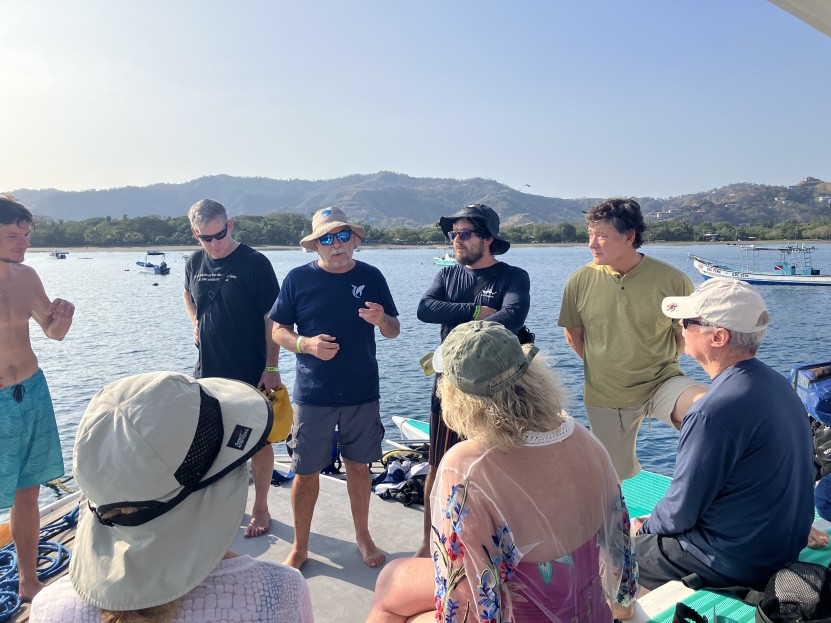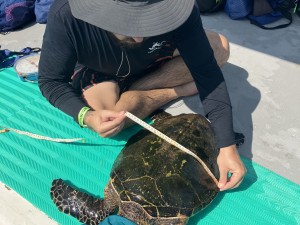2024 Conservation Week with Randall Arauz

Every year we organize several conservation week trips with Randall Arauz. Our first trip this year in january was a great succes.
Randall is the Science and Development Consultant for the Endangered Marine Species Rescue Center of Costa Rica (CREMA-Costa Rica), a grassroots non-profit, and the International Marine Conservation Policy Advisor for Marine Watch International, a San Francisco California based non-profit. Most of the field work is held in the Nicoya Peninsula, and Cocos Island National Park, Costa Rica.
Sea turtles are one of the main groups that CREMA works with, operating 4 community-based nesting olive ridley sea turtle (Lepidochelys olivacea) conservation projects (San Miguel, Costa de Oro, Bejuco and Corozalito). We also perform “in-water” monitoring of green (Chelonia mydas) and hawksbill (Eretmochelys imbricata) sea turtle populations.
During our sea turtle expedition, we will proceed to directly catch turtles during dive activities or catch them by means of special turtle nets. Only the biologists are allowed to catch turtles, but we always need assistance bringing the turtle on-board and during other procedures. Turtles are brought on board for weighing and measuring. We obtain tissue samples for genetic and stable isotope analysis, and proceed to tag with external metal flipper tags.
The science generated is used to foster the improvement of sea turtle conservation and management, such as by identifying critical and essential habitats for these species, identifying the threats, and calling on the authorities for the appropriate measures to be taken at these sites. Through our sea turtle work we have already created two marine protected areas in the Nicoya Peninsula for sea turtles, the Caletas National Wildlife Refuge (2006) and the Camaronal National Wildlife Refuge (2009). We are also working with the Ministry of Environment on the creation of new marine protected areas, particularly considering the threat posed by a potential return of the shrimp trawl industry, banned since August of 2019.
Our intention is for your support to go beyond a sea turtle expedition. We need as many sea turtle advocates to support our work as possible for the science to influence public policy…that’s where the real trick is at! Hopefully, after a week’s infusion into sea turtle biology and conservation, you’ll be an activist!
During this expedition we will visit the Catalina Islands, an archipelago of over 20 Islands and rocky outcrops. The area is currently unprotected, and is heavily used by the dive tourism industry, the sports fishing industry, and the small-scale fisheries industry. We are working with local conservation groups for a protection status to be granted to the site. We will also explore several rocky outcrops in the Gulf of Papagayo and Bahía Culebra. Depending on the weather we may travel to the Bat Islands.
Finally, we will visit a sea turtle nesting beach. This time of the year is the season for critically endangered leatherback turtles and endangered green turtles. Although our main priority is to see nesting leatherback turtles, it may not be possible. Numbers of nesting leatherbacks at Las Baulas National Park has declined 98% during the last two decades. Nowadays, even during the peak of nesting activity (late December – early January), not even a turtle a night shows up to nest. Depending on nesting activity and the advice provided by the Park Rangres, we may change the objective and seek for nesting green turtles in Playa Nombre de Jesús, a nearby nesting beach.




